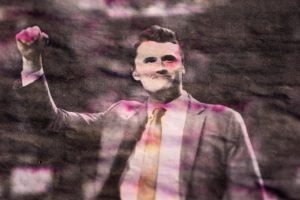Music belongs to everyone
April 1, 2013
On March 16, I was stumbling through Facebook—or life, rather—and came across a thought-provoking status from Connor Bernhard, 20, of Crystal Lake:
“No one really owns music.”
I was taken aback by the idea. Is it really something to consider? Music publishers exist for a reason and plagiarism was created to prevent the ideas of others from being stolen—or, at least, to give credit to the original author of a work properly.
But then I thought back to Karl Paulnack’s speech to the Boston Conservatory, where he said the ancient Greeks considered astronomy and music two faces of the same coin. This was even before the idea of Jesus Christ as the son of God was conceived—music has been present in cultures since the era of the Library of Alexandria, and it was even used to teach mathematics in classrooms around that time as well.
First of all, it’s amazing that this particular art form has been recorded since then–absolutely amazing.
Music was created as a means of expression and education. From what I can interpret, music’s original purpose was to heal the soul and to be part of a public domain. Theoretically, it can still serve as an educational purpose with the Fair Use Act in the United States.
Bernhard’s status was provoked by jazz trumpet player Nicholas Payton wanting to change the name of jazz to Black American Music-or B.A.M. Bernhard’s reasoned that, while jazz has a deeply-rooted African-American influence, what does it matter? Why would you try to say that a race—or anyone, for that matter–owns an entire genre of music?
“My thought process on music is that all good music—and indeed any art form—doesn’t really come from us,” Bernhard said in an email. “It comes from the space we give ourselves from our mind shutting the constant ego monologue off. In that way, I don’t think anyone has a right to say they own a piece of music if we are to believe that.”
From what I gather, this possessiveness of music began once you could record your work as an artist on parchment, as a sound recording—you get the idea.
What happened? Whose idea was it to make a song and say that it is their song, which they created and no one else is allowed to take their ideas?
Here’s my bottom line: Once an artist could sell or distribute music, it no longer became a means of expression. But if an artist can say they would still do it if they were homeless, or if they would be selfless through music overall, then they possess the gift of music in its purest form.






